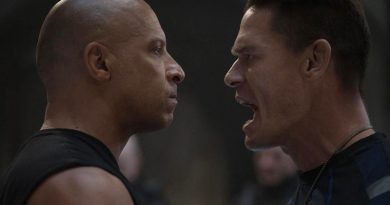Widows (2018) Review
Ever since Widows first premiered at last year’s Toronto Film Festival, Steve McQueen’s highly-anticipated heist thriller has received overwhelmingly positive responses from most critics. Despite earning mostly favourable reviews, the movie failed to find enough audiences when it made its theatrical debut in the stateside back in mid-November.
Which makes me wonder is Widows just another overrated piece of cinema that got critics singing praises all over and yet it failed to resonate with the audiences? Upon finally manage to watch the movie here (thanks to 20th Century Fox Malaysia and Golden Screen Cinemas for promoting it as part of their Finest Five: Season 2 slot), Widows doesn’t turn out to be as great as it led me to believe it in the first place.
But before we get to that, here’s what the movie is all about: Based on the 1983-1985 British TV series of the same name, Widows basically involves four titular women (Viola Davis’ Veronica Rawlings, Michelle Rodriguez’s Linda Perelli and Elizabeth Debicki’s Alice Gunner) who are all facing troubles following their criminal husbands’ (among them are Liam Neeson’s Harry and Jon Bernthal’s Florek) botched robbery gone awry. When a local crime lord and politician Jamal (Brian Tyree Henry) demands Veronica to cough up US$2 million that Harry and his partners stole from them earlier, her only chance to repay the debt is recruiting two of the other widows and use Harry’s notebook to orchestrate a US$5 million heist.

The setup alone has all the work of an exciting, mainstream-friendly heist thriller where McQueen could have gone Michael Mann’s Heat or Steven Soderbergh’s Ocean’s Eleven-like route. But McQueen alongside screenwriter Gillian Flynn (yes, the same person who wrote the 2012’s Gone Girl novel and also adapted her own screenplay in David Fincher’s unforgettable 2014 thriller of the same name) chose not to confine themselves within its genre convention that we normally come to expect.
So, what we have here is a timely blend of #MeToo theme of female empowerment, diversity (as seen in the principal cast alone) as well as racial and class issues all integrated into this otherwise straightforward heist thriller. It was actually a refreshing change of pace but McQueen and Flynn’s screenplay tends to feel overstuffed than rightfully earned, making its 128-minute running time noticeably laborious in places.

But despite its erratic pace, Widows remains an intriguing piece of work. McQueen proves to be quite of a visual stylist, staging some of the action sequences like a seasoned pro with the help of cinematographer Sean Bobbitt and editor Joe Walker. The action setpieces may have been few and far between, but when they do arrive, McQueen wisely framed them mostly in long takes instead of resorting into shaky-cam aesthetics or quick cuts commonly plagued by today’s action-oriented filmmakers these days. Then, there’s the stirring music score by Hans Zimmer which certainly helps elevate the action into a certain visceral vibe.
The ensemble cast is equally stellar, beginning with Viola Davis’ commanding lead performance as the take-charge Veronica. But of all the female cast here, it was Elizabeth Debicki who stole most of the limelight as Alice, whom we first saw her as a dumb blonde of sorts who occasionally gets bullied by others (particularly her abusive mom played to perfection by Jacki Weaver) before gradually emerged herself as a person who learns her life lesson the hard way.
Widows is also blessed with strong supporting roles all around, with Daniel Kaluuya particularly impresses me the most with his menacing performance as Jamal’s no-nonsense brother, Jatemme.





